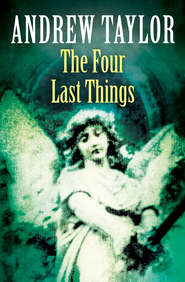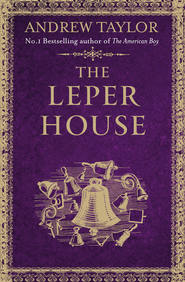По всем вопросам обращайтесь на: info@litportal.ru
(©) 2003-2024.
✖
Fallen Angel
Автор
Год написания книги
2019
Настройки чтения
Размер шрифта
Высота строк
Поля
‘Nonsense. You need some food in that little tummy. And don’t forget your Ribena.’
Lucy dropped her spoon on the table. ‘But I’ve had enough.’
‘Come along: eat up.’
‘I’m full.’
‘You’ll do as I say, Lucy. You must always finish what’s on your plate.’
‘Mummy doesn’t make me when I’m full.’ Lucy’s eyes brimmed with tears but her voice was loud so she sounded more angry than afraid. ‘I want Mummy.’
‘We’re not at home to Miss Crosspatch,’ Angel announced.
Eddie laughed. He would not usually have dared to laugh, but now the boundaries were shifting. After all, he was not entirely sure that this was really happening. It might be a dream. At any moment he might wake up and see, hanging on the wall by the door, the picture of the little girl which his father had given his mother. The girl like Lucy.
‘You’re really not yourself, Eddie.’ Angel walked into the hall. ‘I’m going to take your temperature.’ Her footsteps ran lightly up the stairs.
Lucy pushed the toast aside with a violent movement of her right arm. The far side of the plate caught the plastic cup, which slid to the edge of the table. Ribena flooded across the floor.
For an instant, Eddie and Lucy looked at each other. Then Lucy slithered off her seat and ran for the door – not the door to the hall but the door to the garden. Eddie knew he should do something, if this were not a dream, but he wasn’t sure he would be able to stand up. In any case, it wouldn’t matter: they kept the back door locked when they had a little girl staying with them.
He watched Lucy twisting the handle and pulling. He watched the door opening and felt cold air against his skin. Only then, as Lucy ran into the garden, did he realize that she really was outside. He was aware, too, that this was his fault – that he had unlocked the door when he went out to look through the basement window at Angel and Lucy. Seeing Mrs Reynolds on her balcony had made him forget to relock it when he came in. Angel would blame him, which was unfair: it was Mrs Reynolds’s fault. He stood up, propping himself on the table.
Angel took him by surprise. She ran across the kitchen from the hall, the ponytail bouncing behind her, and out of the back door. Eddie heard a crack like an exploding firework. There was another crack, then a pregnant silence, the peace before the storm. He let himself sink back on to his chair.
It was almost a relief when Lucy began to cry: jagged sobs, not far from hysteria. Angel dragged her inside, kicked the door shut and turned the key in the lock. Angel was pale and tight-lipped.
‘Very well, madam.’ Angel was holding Lucy by the ear, her nails biting in to the pink skin. ‘Do you know what happens to naughty children? They go to hell.’
Eddie cleared his throat. ‘In a way, it’s not her fault. She’s –’
‘Of course it’s her fault.’
Lucy pressed her hand against her left cheek. The sobbing mutated into a thin, high wail.
‘Perhaps she’s tired,’ Eddie muttered. ‘Perhaps she needs a rest.’
Angel pushed Lucy away. The girl fell against a chair and slid to the floor. She stayed there, half-sitting, half-sprawling, with an arm hooked round a chair leg and her head resting against the side of the seat. Ribena soaked into the skirt of her dress.
The crying stopped. Lucy’s mouth hung open, the lips moist and loose. Fear makes children ugly.
‘It’s all right, Lucy.’ Eddie sat down on the chair beside hers and patted Lucy’s dark head. She jerked it away. ‘You’re a bit overexcited. That’s all it is.’
‘That’s not all it is.’ Angel tugged open the drawer where they kept the kitchen cutlery. ‘She needs a lesson. They all need a lesson.’
Eddie rubbed his aching forehead. ‘Who need a lesson? I don’t understand.’
Angel whirled round. In her hand was a pair of long scissors with orange plastic handles. She pointed them at Eddie, and the blades flashed. ‘You’ll never understand. You’re too stupid.’
He looked at the table and noticed the swirl of the grain around a knot shaped like a snail. He wished he were dead.
‘If they do wrong,’ Angel shouted, ‘they have to pay for it. How else can they make things right?’
Eddie examined the snail. He wanted to say: But she only spilled some Ribena.
‘And if they don’t want to, then I shall make them.’ Angel’s face was ablaze. ‘We all have to suffer. So why shouldn’t they?’
But who are ‘they’? The four girls or –
‘Come here, Lucy,’ Angel said softly.
Lucy didn’t move.
Angel sprang across the kitchen, the scissors raised in her right hand.
‘No,’ Eddie said, trying to get up. ‘You mustn’t.’
With her left hand, Angel seized Lucy by the hair and dragged her to her feet. Lucy screamed. Oddly detached, Eddie noticed that there were toast crumbs and a long stain of yolk on the green Laura Ashley dress.
Angel pulled Lucy by the hair. Lucy wrapped one arm round a table leg and screamed. Angel pulled harder. The table juddered a few inches over the kitchen floor.
‘Angel, let her go. Someone might hear.’
Lucy squealed. Angel yanked the little girl away from the table. She towered over Lucy, holding the scissors high above the girl’s head.
‘No, Angel, no!’ Eddie cried. ‘Please, Angel, no.’
9 (#ulink_952ea0b7-bd1a-5c11-98ca-1815ab7f16e0)
‘But that those phantasms appear often, and do frequent Cæmeteries, Charnel-houses and Churches, it is because those are the dormitories of the dead …’
Religio Medici, I, 37
If you wanted a model for the devil, you could find worse than David Byfield. Not one of the coarser manifestations: Uncle David would be a sophisticated devil, the sort who charms or terrifies according to his whim.
‘You’re being very foolish.’ The old priest’s voice was quiet but carrying; Uncle David had learned to fill the empty spaces of churches in the days before public-address systems.
Wide-eyed, Sally stared up at him. St Michael’s filled with a blessed silence. Her mind had cleared as if a fever had receded, leaving her weak but in control. She concentrated on David Byfield, glorying in his ordinariness; he was real, safe and sane. He was wearing a dark, threadbare overcoat with a navy-blue scarf wound loosely round his neck, and between the woollen folds Sally glimpsed the white of his dog collar and old, sagging skin. He was neatly shaved. In the years since she had met him he had developed a stoop: his bony face curved over her like a gargoyle on a church roof.
‘At times like this,’ he went on, ‘you need company. You do not sit alone in dank churches.’ With a speed that took her by surprise, he placed his right palm lightly but firmly over the fingers of her left hand. ‘You’re freezing. You’ve probably had next to no breakfast. Is it any wonder that you’re seeing devils waving toasting forks?’
‘Don’t be ridiculous.’ The echo of her thoughts unnerved her. ‘I was just thinking. And in my situation it’s not surprising I’m a little depressed.’
‘You’re doing more than thinking. You’re leaving yourself defenceless.’ He sat down in the pew in front of her and turned slowly towards her. ‘Devils – I should have known that word would embarrass you.’
‘I’m not embarrassed.’
He ignored her. ‘It’s simply a metaphor. Why should that be so hard for your generation to grasp? All language is metaphor. When did you last talk to a priest?’











